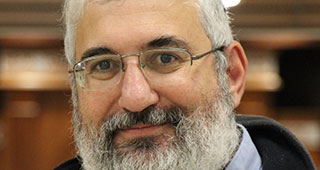- Sections
- P'ninat Mishpat
- Jewish Laws and Thoughts
- The Coronavirus Pandemic
182
Ruling: Agreements that cannot be kept due to a pandemic fall under the category of a makkat medina (a broad unavoidable problem that cannot be attributed to anyone’s "bad mazal"). The Rama (Choshen Mishpat 321:1) rules that if one rents a property and then cannot use it due to a makkat medina, he can take off from the rent. For the time he could not use it, he need not pay.
Elsewhere, the Rama goes further (ibid. 312:17). If one rented a house and the whole city burned down, then for the time after the fire, he even gets a refund of what he prepaid. The Taz and Shach (on CM 334:1) rule that the same is true even there is nothing wrong with the rented house but that people needed to flee the city due to a plague. The Mabit (I:40) says that the same is so if non-Jews kicked the Jews of the city out of their houses. In our case, then, pl should deserve their money back.
Another approach that supports pl is presented by the Netivot Hamishpat (230:1). Even if one buys a house, if before he had an opportunity to benefit from it, a makkat medina prevented using it, he can back out of the deal based on the assumption (umdana) that one would never agree to acquire it if such circumstances were included. The Chazon Ish (Bava Kama 23:10) also explains the lack of responsibility to pay for a rental that cannot be used based on umdana.
On the other hand, the Machaneh Ephrayim (Sechirut 7) says that if the renter paid a down payment and then a makkat medina occurred, the owner does not have to return the down payment. Here the Machaneh Ephrayim applies, as he is based on Tosafot (Bava Metzia 79b) talking about a case in which neither side to the agreement is able to follow through on it. Here too, the government does not allow the halls to open or people to assemble there. However, the Machaneh Ephrayim is a minority opinion (see Minchat Pitim, CM 321:1). Therefore, in the standard case of a hall closed due to Corona, the down payment must be returned.

Buying a Driving School Car
Various Rabbis | 6 Av 5767

A Landlord's Responsibility
Various Rabbis | 17 Shvat 5768

Counter Claims – part III (Privacy, Housing Unit, Pipes, Aravot)
Beit Din Eretz Hemda - Gazit | Tevet 5784

P'ninat Mishpat: Rental of an Apartment that Was Not Quite Ready – part II
based on ruling 82031 of the Eretz Hemdah-Gazit Rabbinical Courts
Beit Din Eretz Hemda - Gazit | Iyar 5784

Beit Din Eretz Hemda - Gazit

Limits of Interest Rate for Loan with Heter Iska – part II
based on ruling 80033 of the Eretz Hemdah-Gazit Rabbinical Courts
Sivan 15 5782

Repercussions of a Sale that Turned Out Not Happening – part III
(based on ruling 83045 of the Eretz Hemdah-Gazit Rabbinical Courts)
18 Sivan 5784

Halachic Shmita Guide from Eretz Hemdah
Elul 8 5781

A Commercial Rental for a Closed Business – part II
based on ruling 80047 of the Eretz Hemdah-Gazit Rabbinical Courts
Shvat 1 5782

Crimes against Society
Hirsch At Your Table
Rabbi Matityahu Clark

Raising Charitable Funds on Shabbat
Rabbi Daniel Mann | 5775

Chalav Yisrael and Powdered Milk
Rabbi Yirmiyohu Kaganoff | 5772

Raising Charitable Funds on Shabbat
Rabbi Daniel Mann | 5775

The Yom HaZIKARON SIREN- EVERY ARROW NEEDS A HEAD!
Rabbi Ari Shvat | Iyar 5785

Daf Yomi Makkot Daf 18
R' Eli Stefansky | 28 Nisan 5785

Ask the Rabbi: Scratching Improperly Parked Cars
Rabbi Daniel Mann | Iyar 5785





